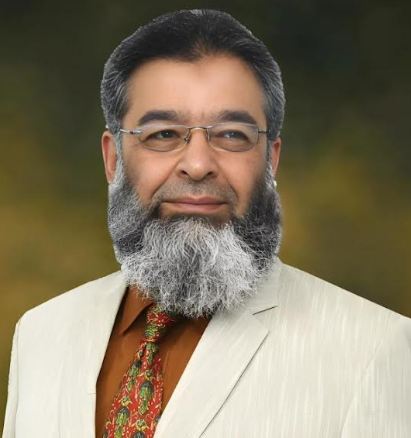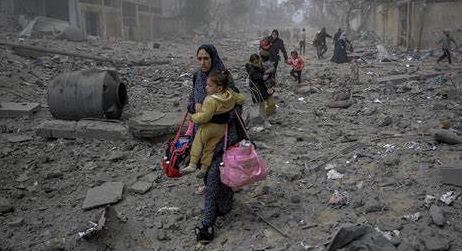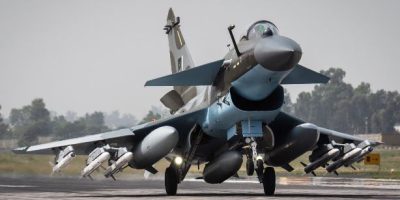Ceasefire Without Resolution: The Unfinished Struggle for Peace

by: Muhammad Mohsin Iqbal
A ceasefire has finally been declared between Israel and Palestine, bringing an end to weeks of devastating conflict. This war, like many before it, has left behind a trail of destruction, immense human suffering, and deep political and social scars. While both sides claim justification for their actions, the toll on human life and infrastructure has been staggering, with the consequences of this latest conflict likely to be felt for decades.
In Palestine, the losses have been catastrophic. Thousands of civilians, including women and children, lost their lives. Entire neighborhoods have been reduced to rubble as airstrikes and artillery fire targeted residential areas, markets, and shelters. Medical facilities, including hospitals and clinics, were severely damaged or destroyed, leaving the injured without adequate care. Schools were turned into piles of debris, depriving children of education and safety. The economic losses are equally devastating, with estimates running into billions of dollars. Infrastructure essential for daily life, such as water systems, electricity grids, and transportation networks, has been obliterated, plunging many areas into a humanitarian crisis.

Israel, too, suffered significant losses, albeit on a smaller scale. Rocket attacks by Palestinian groups caused casualties and injuries among civilians, with many left to grapple with the trauma of living under constant threat. Residential buildings and public infrastructurewere damaged, though the extent was far less than in Gaza. The Israeli government allocated substantial resources to its military operations and civil defense, straining the national economy.
The war left both sides with thousands injured, many of whom will bear lifelong physical and psychological scars. The destruction of homes, hospitals, schools, and places of worship on both sides symbolizes the indiscriminate nature of modern warfare. Yet, the disparity in destruction highlights the unequal capabilities and vulnerabilities of the two parties.
Questions about accountability and justice loom large. International law prohibits targeting civilians and civilian infrastructure, and both sides have been accused of committing war crimes. Will the international community hold perpetrators accountable? Historically, global powers have often chosen diplomacy over justice, with war crimes investigations either delayed or abandoned due to political considerations. The United Nations and human rights organizations have, once again, faced criticism for failing to prevent the conflict and protect civilians. Despite numerous resolutions and calls for peace, the UN’s inability to enforce its decisions underscores its weakened role in global conflict resolution.
Will this ceasefire include measures to ensure that such wars do not recur in the future? Unfortunately, the agreement does not seem to address the root causes of the conflict, such as territorial disputes, political tensions, and the blockade on Gaza. Without clear and enforceable mechanisms to address these issues, this ceasefire risks becoming just another pause before the next eruption of violence.
Are wars truly the solution to problems? This conflict serves as yet another reminder that war only deepens divisions, destroys lives, and perpetuates cycles of suffering. Every war leaves behind unhealed wounds and unresolved grievances. Diplomatic efforts and peaceful negotiations are the only viable paths to lasting solutions, yet these paths are often overshadowed by the destructive allure of military might.
What lessons have we learned from these wars? The repeated outbreak of hostilities between Israel and Palestine shows the failure of political and international systems to resolve deep-seated disputes. It also highlights the resilience of ordinary people who bear the brunt of these conflicts but continue to hope for peace. The lesson is clear: without justice, there can be no peace, and without addressing the underlying issues, temporary ceasefires are mere illusions of calm.
As the dust settles, the daunting task of reconstruction begins. For Palestine, rebuilding will require massive international aid. However, previous conflicts have shown that promises of assistance often fall short, leaving Palestinians to struggle with inadequate resources. In Israel, while the damages are less extensive, reconstruction efforts will also demand significant investment.
The failure of the United Nations and human rights organizations in preventing this war and mitigating its effects cannot be ignored. Their inability to enforce international law and ensure the protection of civilians highlights the urgent need for reforms in global governance. Mechanisms must be strengthened to prevent conflicts, hold aggressors accountable, and provide justice to victims.
The road to peace is long and fraught with challenges. Both sides must engage in meaningful dialogue to address core issues and build trust. The international community must play an active role in mediating and supporting peace efforts. Reconstruction in Palestine should be prioritized, with transparent mechanisms to ensure aid reaches those who need it most.
Ultimately, the true cost of this war cannot be measured in numbers alone. Beyond the lives lost, the injuries sustained, and the buildings destroyed, the psychological trauma, loss of trust, and deepened divisions between communities are immeasurable. This ceasefire must be seen not as an endpoint but as a starting point for addressing the fundamental issues that lead to violence. The world must collectively reflect on whether it will continue to allow wars to devastate generations or work toward building a future where dialogue and justice prevail over destruction.
Related News

Beyond swift retort to the relentless rise of Pakistan’s Air Power
by: Izmi Herlani Nations are not secured by rhetoric; they are secured by resolve. FromRead More

Uzbekistan and Pakistan strengthen the bridges of friendship
Author: Bekhzod Alimjanov In the first days after Uzbekistan’s independence, I was deeply moved toRead More


Comments are Closed